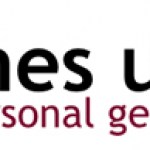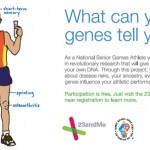participant-driven research
Back in June I launched a new blog, Genomes Unzipped, together with a group of colleagues and friends with expertise in various areas of genetics. At the time I made a rather cryptic comment about "planning much bigger things for the site over the next few months".
Today I announced what I meant by that: from today, all of the 12 members of Genomes Unzipped - including my wife and I - will be releasing their own results from a variety of genetic tests, online, for anyone to access. Initially those results consist of data from one company (23andMe) for all 12 members; deCODEme for one…
Back in June I launched a new blog, Genomes Unzipped, together with a group of colleagues and friends with expertise in various areas of genetics. At the time I made a rather cryptic comment about "planning much bigger things for the site over the next few months".
Today I announced what I meant by that: from today, all of the 12 members of Genomes Unzipped - including my wife and I - will be releasing their own results from a variety of genetic tests, online, for anyone to access. Initially those results consist of data from one company (23andMe) for all 12 members; deCODEme for one…
Misha Angrist has a very brief but eloquent rant in response to the genomics nay-sayers in this Nature News piece on the bankruptcy of deCODE Genetics.
Here's a taste:
I agree: GWAS is of limited value and this probably contributed to deCODE's demise. But whatever deCODE's fate, if whole human genomes can be sequenced for < $2000, isn't it about time we stopped kicking GWAS's ever-stiffening corpse? Second, just because something is not a medical necessity, does it follow that it is worthless?
Here's the rest.
Subscribe to Genetic Future. Follow Daniel on Twitter
It's been an intensive week of genomics here at the American Society of Human Genetics meeting, and I haven't been able to grab time to blog as much as I'd have liked. In fact there's a whole load of genomics news I'll be trying to cover in some detail over the next couple of weeks; for the moment, though, I couldn't let today's presentation from personal genomics company 23andMe go by without at least some comment. (For other coverage of the conference, do check out Luke Jostins' blog coverage and the stream of live analysis on Twitter.)
The 23andMe presenter (Nick Eriksson) delivered an…
A tweet from personal genomics company 23andMe (see screenshot below) sparked my interest:
I knew 23andMe had been successful in recruiting Parkinsons patients as part of its targeted drive, and the 337 unspecified "patients" are the product of their broader recruitment drive for diseased genomes, Research Revolution (which I've dissected in a previous post) - but the athletes were news to me.
A little Google-trawling revealed (see page 15 of this PDF article from Palo Alto Online) that 23andMe offered free genome scans to all of the participants in the currently ongoing Palo Alto…
Over at the 23andMe blog The Spittoon, company co-founder Linda Avey expands on her vision for a novel model of genomic research, in which personal genomics customers contribute their genetic and health data to fuel research into the inherited and environmental triggers for disease.
This is a model that 23andMe has been building towards for a long time. In May last year the company launched 23andWe, a cutely-named effort to obtain detailed health and trait data from their existing customers through online surveys which could then be combined with genetic data to find novel gene-trait…

